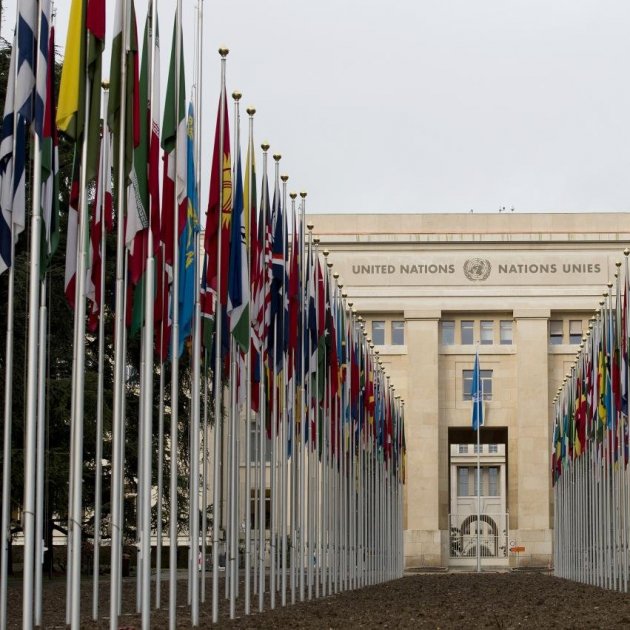The United Nations' headquarters in Geneva will, for the first time, welcome a marathon of debates about the current situation in Catalonia. After numerous denunciations of the violation of human rights in Catalonia by the Spanish state, the question is now to reach the international body.
Next week, the last of the 37th Regular Session of the UN Human Rights Council, will see various debates and round tables. These will cover topics like the regression of human rights in Spain and the right to self-determination. At the same time, other events linked to the topics will be held elsewhere in the city.
As well as different experts, the events will features participants including members of the government currently in exile in Brussels and relatives of those in prison. Currently, president Carles Puigdemont has confirmed he will attend two events, on Sunday and Wednesday, and minister Meritxell Serret will take part in a round table on Tuesday, alongside Jordi Cuixart's partner, Txell Bonet.
On the other hand, former Catalan deputy Anna Gabriel, who has lived in Geneva since going into exile herself almost a month ago, has not yet announced whether she will take part in any of the events planned.
Monday: the regression of human rights
The first event at the UN will be held on Monday at 1:30pm. The Institute of Human Rights of Catalonia and other groups have organised a debate entitled Human Rights regression in Spain. It will features different experts debating the current situation of human rights in the Spanish state, with a focus on Catalonia.
The experts scheduled to take part include Michael Hamilton, a specialist in the protection of the right to freedom of assembly; José Antonio Martín Pallín, a former judge of the Spanish Supreme Court; and Anaïs Franquesa, a criminal lawyer specialising in human rights. Also to speak are the Catalan Ombudsman, Rafael Ribó, and Margalida Capellà, a professor of Public International Law and International Relations. Representing the families of the Catalan political prisoners will be Laura Masvidal of the Catalan Association for Civil Rights.
Tuesday: the right to self-determination
The next day, Tuesday, at 12:30pm, will come a conference on The right to self-determination in the 21st century, moderated by MEP Jordi Solé (ERC) and featuring Nicolas Levrat, professor at the University of Geneva; Jaume López, professor at Barcelona's Pompeu Fabra University; and Alfred de Zayas, independent expert on the Promotion of a Democratic and Equitable International Order to the UN.
Later that afternoon, at 3pm, two panels will be held on the Breaches of fundamental rights in the EU: the Catalan case. The second will feature the Catalan agriculture minister, Meritxell Serret, and Jordi Cuixart's partner, Txell Bonet, who will explain the experiences of exiles and political prisoners in today's EU. The other panel, on the role of the EU in the protection of Human Rights, will be formed by Rachel Lindon, a member of the team of lawyers taking the case of Cuixart, Sànchez and Junqueras to the UN, and MEP Lynn Boylan, a member of the EU-Catalonia Dialogue platform.
Puigdemont's defiant attendance
Parallel to the UN Human Rights Council meeting, Geneva is also hosting the International Film Festival and Forum on Human Rights (FIFDH), the main event internationally dedicated to such movies. On Sunday 18th, the last day of the festival, they will hold a debate on Catalan independence with president Puigdemont as the headline guest. The debate will follow a screening of the film Catalogne: l’Espagne au bord de la crise de nerfs (Catalonia: Spain on the Verge of a Nervous Breakdown).
Three days later, on Wednesday 21st, the president will take part in an event called "Does independence still matter in 21st century Europe?" at Geneva's Graduate Institute of International and Development Studies, continental Europe's oldest school of international relations. The event's will be moderated by BBC correspondent Imogen Foulkes.
Puigdemont and Serret's trip to Switzerland to attend the events has set off alarms among Spanish public prosecutors, who have asked the relevant authorities to study whether they can be arrested in the country and whether Spain can ask for their extradition or limit their passports. So far, spokesperson for the Swiss Federal Office of Justice, Folco Galli, has said there is no possibility of extradition on political charges.
